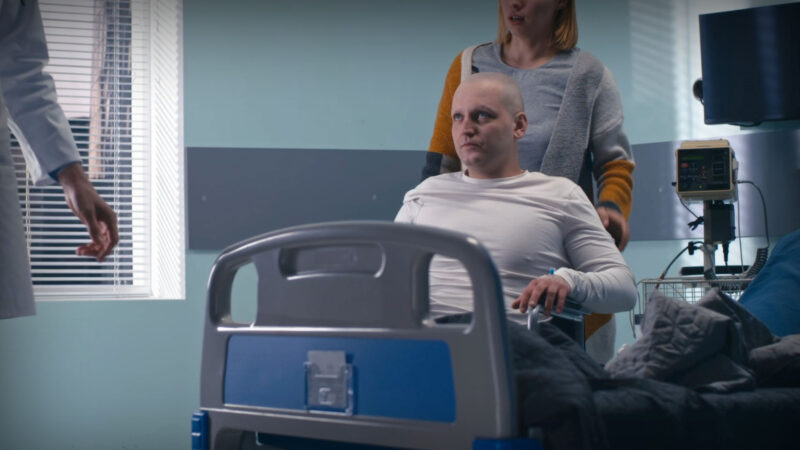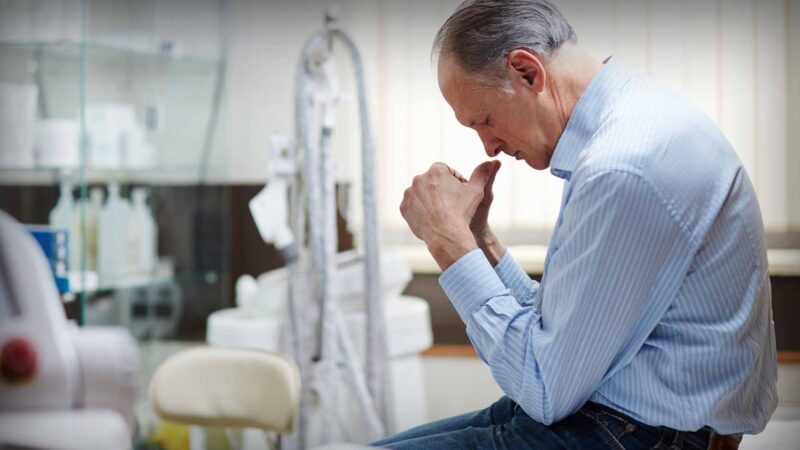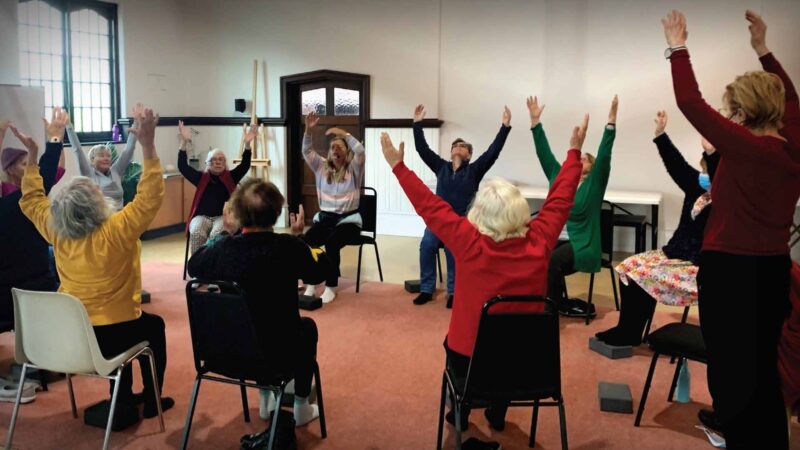INVESTMENTS TO ADDRESS HEALTH INEQUITIES IN PROSTATE CANCER CARE Movember funds three Australian programs targeting under-served populations
SEGMENT
Filmed in Melbourne | February 2025
INTERVIEWS
Sarah Weller
Global Director – Prostate Cancer, Movember
Kris Bennett,
Director – Prostate Cancer Health Equity, Movember
Movember is committed to advancing new research, cutting-edge treatments, and healthy behaviours, and advocating for inclusive, gender-responsive healthcare that caters to the unique needs of men, women, and gender-diverse individuals from diverse cultural backgrounds. In doing so, they hope to forge a future where barriers to healthy living are overcome, stigmas are removed, and where everyone has an equal opportunity to live a long, healthy life.
Income, education, geographical location, and discrimination based on ethnicity, race, gender and sexual orientation, are only a fraction of factors that can negatively affect a person’s quality of cancer care. This is defined as the “equity gap” and it’s costing people their lives.
Timed to coincide with World Cancer Day 4th February 2025, Movember announced prostate cancer investment of $5.5 million. Eighteen grants (16 proposals and 2 community development grants) are slated to directly tackle inequities in prostate cancer care. The funding will be over three years with the grants spread across five countries – six in Canada, five in the United Kingdom, three in Australia, three in the United States and one in Ireland – each having a specific focus population and care area.
AUSTRALIAN FUNDING FOR TARGETED PROSTATE CANCER CARE OUTREACH PROGRAMS
– The prostate cancer mortality rate in remote areas is almost 20% higher than in major cities. Access to treatment is the leading cause. This equity gap is what the Royal Flying Doctor Service of Australia’s grant will address, to improve access to and use of prostate cancer treatment services in rural and remote areas.
– Currently, prostate cancer data on the culturally and linguistically diverse communities of South Western Sydney is insufficient. That’s the first roadblock to improving this historically overlooked group’s prostate cancer care. The George Institute for Global Health aims to fill in the blanks with population level data to help close this equity gap.
– Australian Prostate Centre will create culturally appropriate prostate cancer services and practices for the LGBTQIA+ community, to counter the fear of discrimination and stigma that often stands in its way of getting prostate cancer screenings and diagnoses.
Australian Health Journal spoke with Movember about these targeted outreach programs in Australia and the hope they will help provide education and empower historically and intentionally excluded communities, using community stakeholders and voices to build trust. Collaborations with healthcare providers, academic institutions, and community-based organisations will share resources and expertise to develop tailored solutions.
You Might also like
-
Sharing the same goals in value-based procurement
Value-based procurement (VBP) is a journey, not a sprint. It’s about putting the patient at the centre of quality affordable healthcare through changes in procurement practices for medical technologies. Patient outcomes drive value and sustainability, not just price. The bigger picture indicates that VBP will create system cost saving through benefitting patients, rather than trying to attain the reverse – a win-win outcome.
-
Pharmacy led men’s urological health
Men’s urological needs refer to the medical and surgical conditions that affect the male urinary tract system and reproductive organs.
A urologist can address these concerns, however a pharmacy-led model of care developed by Brad Butt, called Mens Health Downunder has offered an alternative to certain urological needs of the male adult population over the past 10 years.
Australian Health Journal met with Brad to hear about his journey, Mens Health Downunder and the impact the pharmacy-led model of care has had on patient’s urological as well as mental health.
-
Victorian social prescribing program underway
n Part 2 of the Models of Care on Social Prescribing, Australian Health Journal spoke to 4 people involved in the Connect Local program under the Connecting Communities to Care 4 year program. The free program for over 65’s promotes wellbeing through social connection and is underway in the Glen Eira community in Melbourne.
– Deidre McGill, Executive General Manager, At Home Support, Bolton Clarke
– Ann Van Leerdam, Connect Local Community Connector, Bolton Clarke
– Dr Rajna Ogrin, Senior Research Fellow, Bolton Clarke Research Institute, Bolton Clarke - Dr Daniel Fineberg, Deputy Director General Medicine, Alfred Hospital, Victoria



